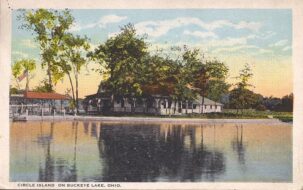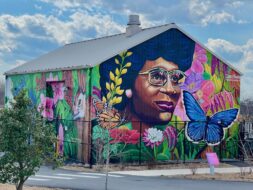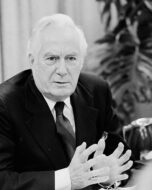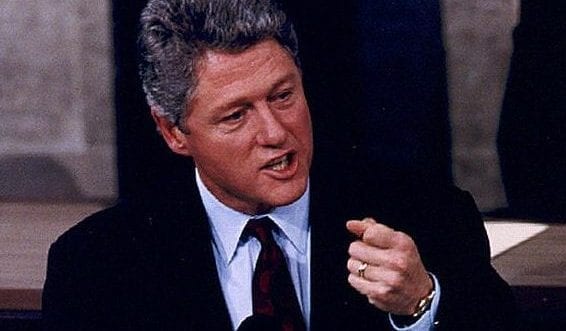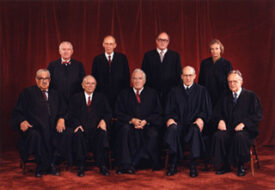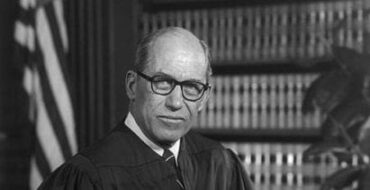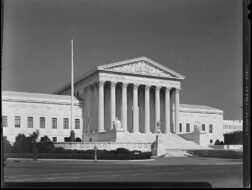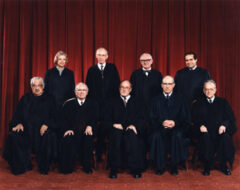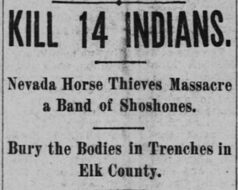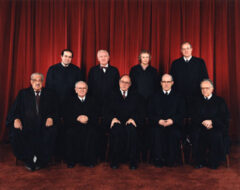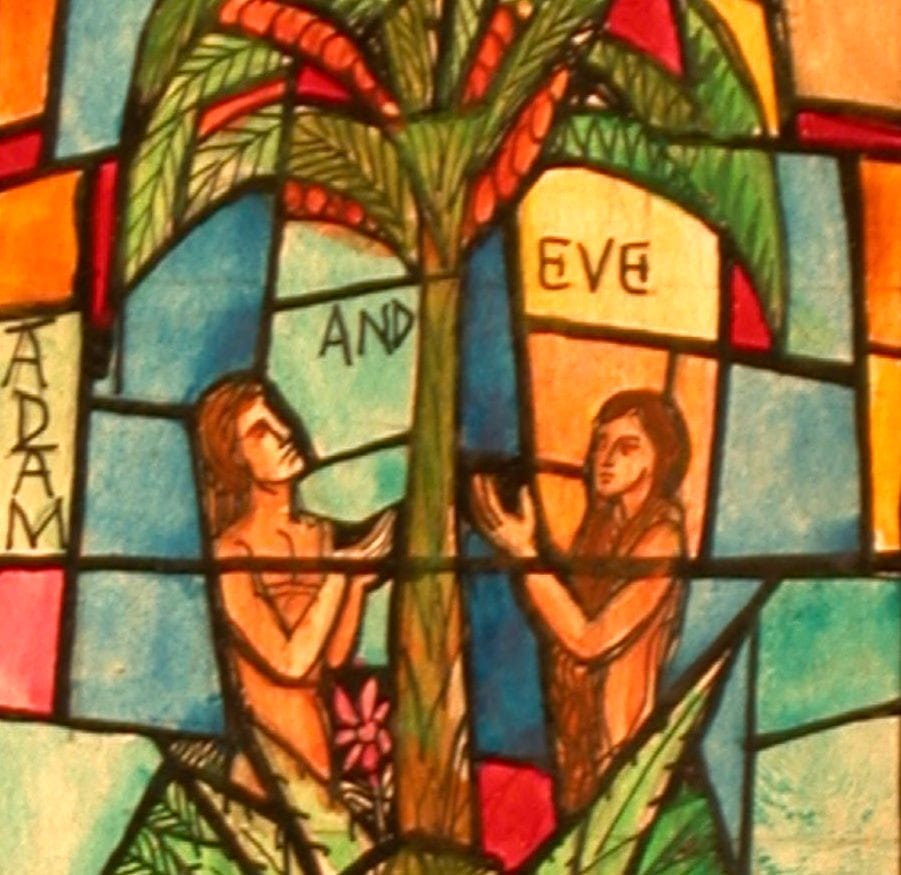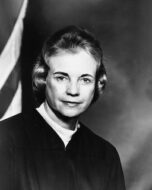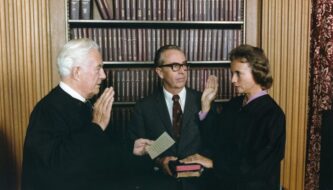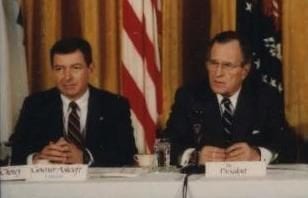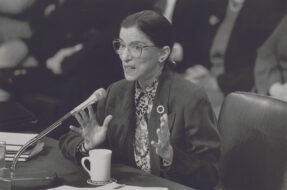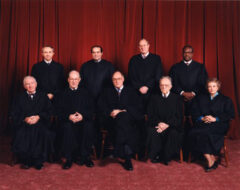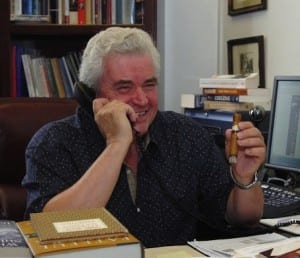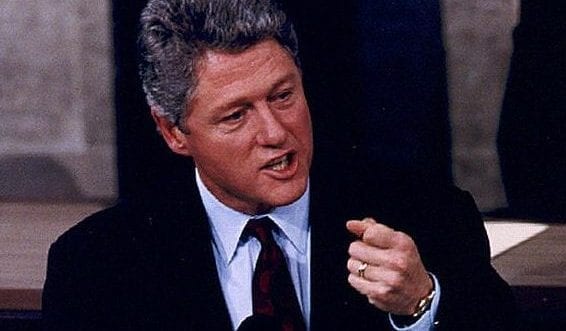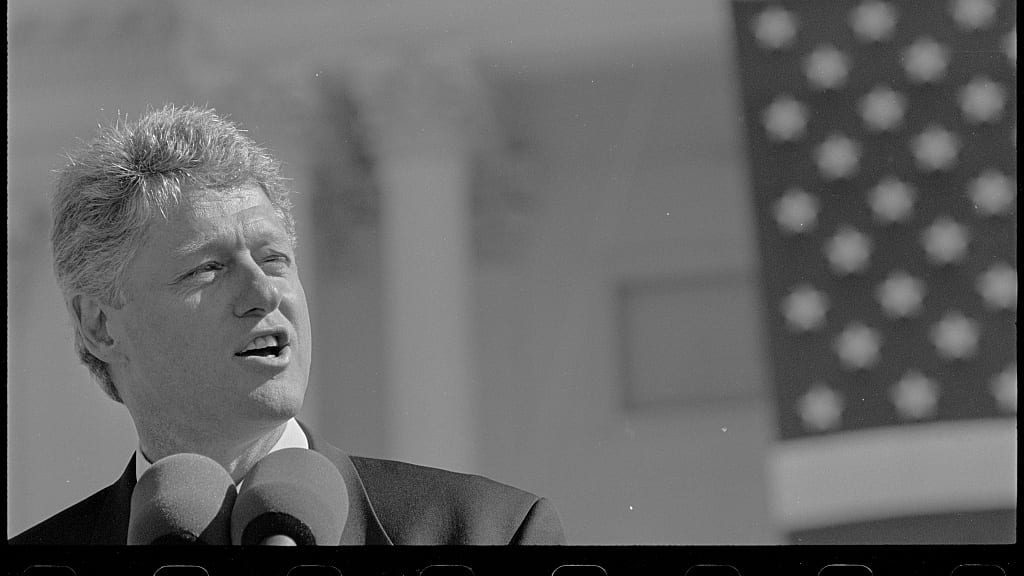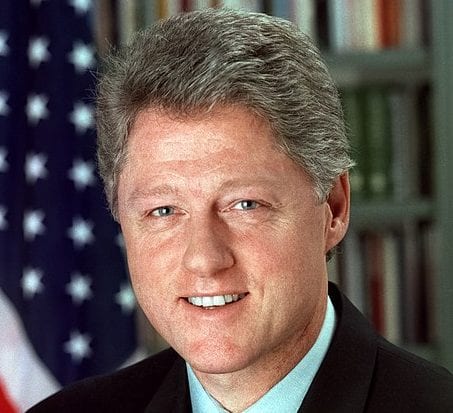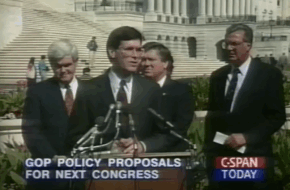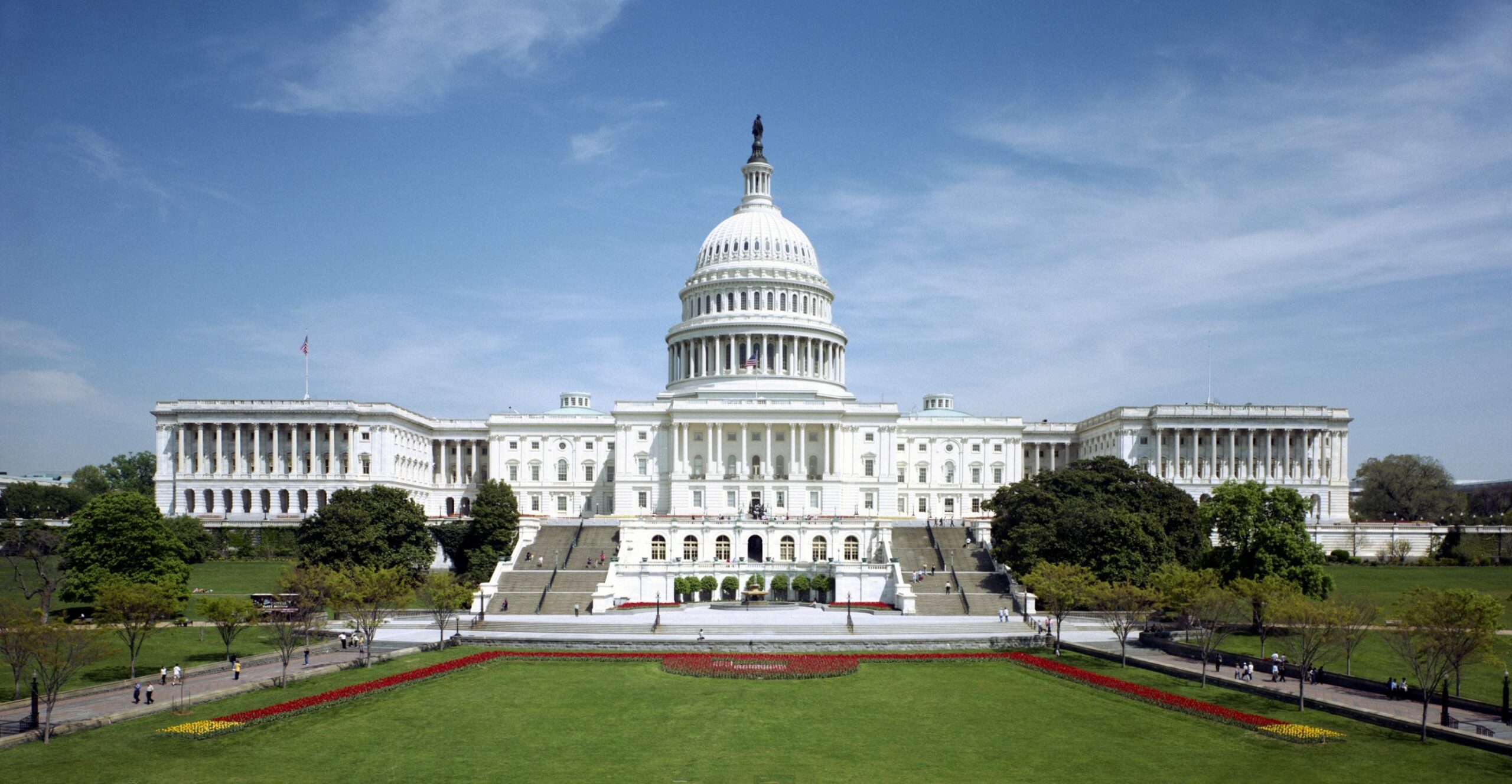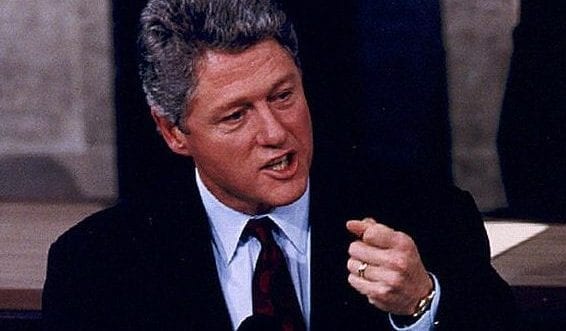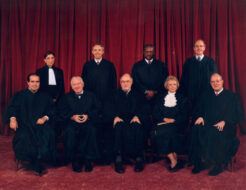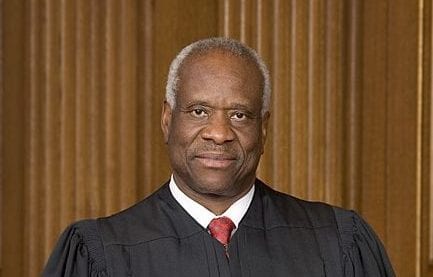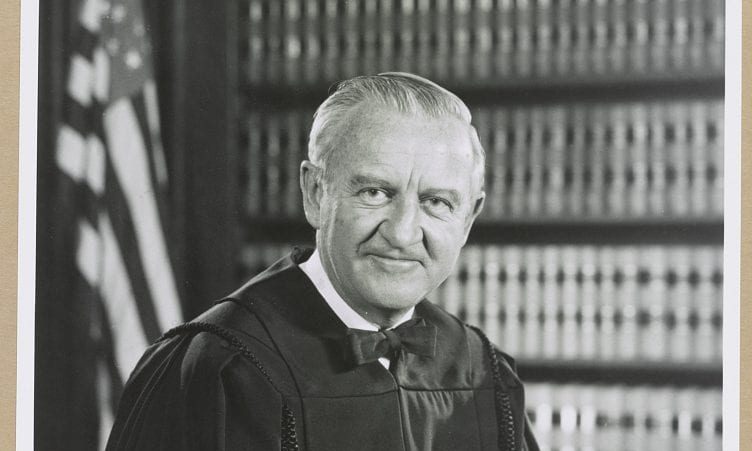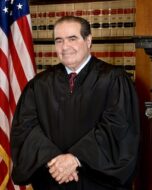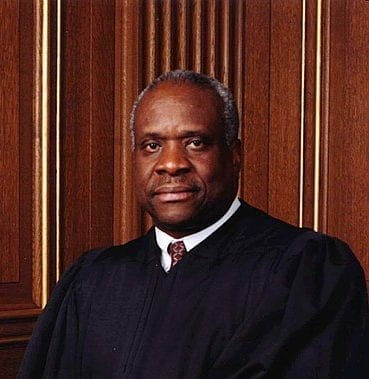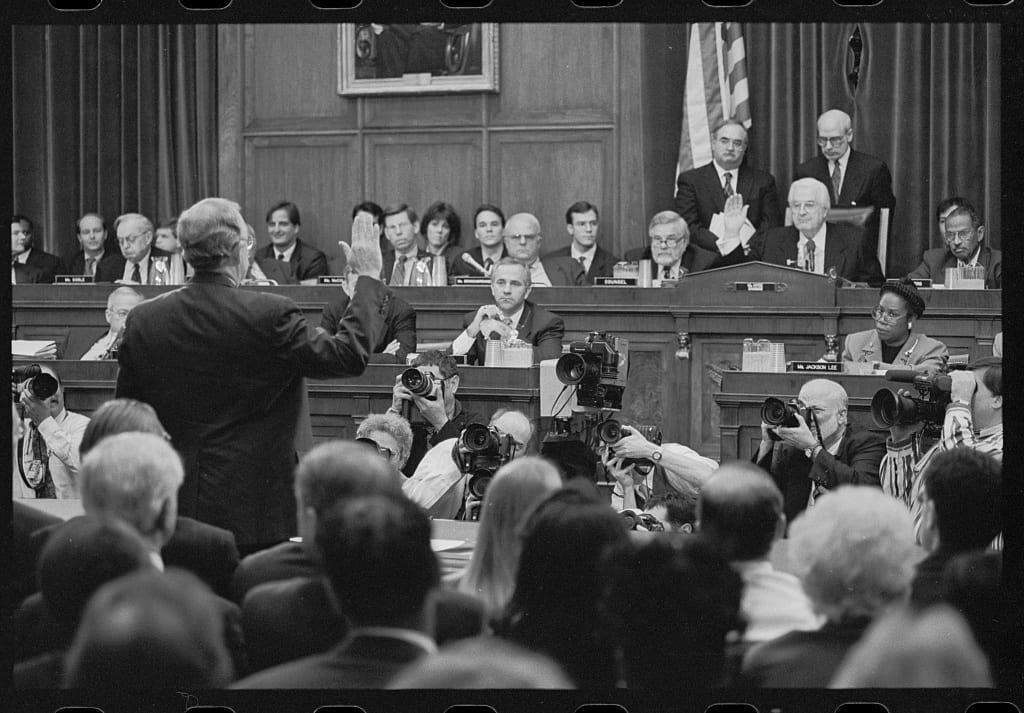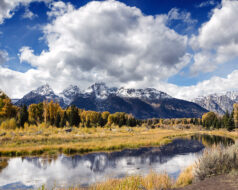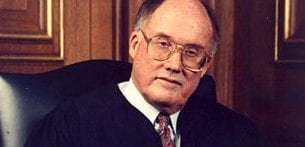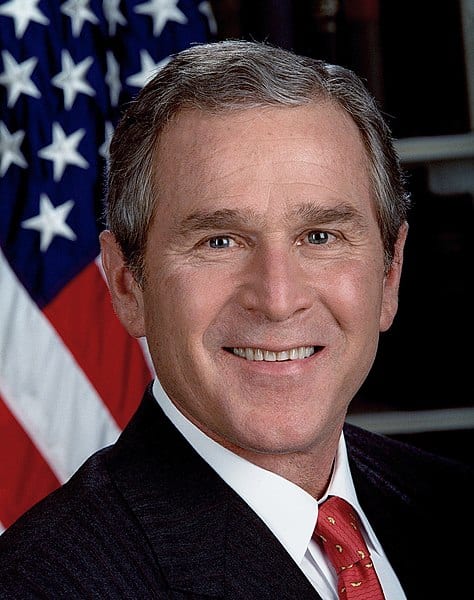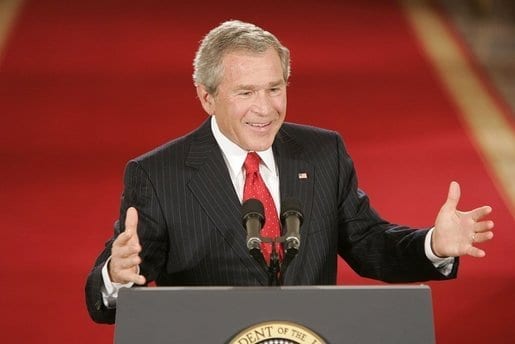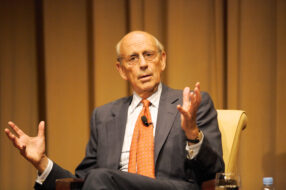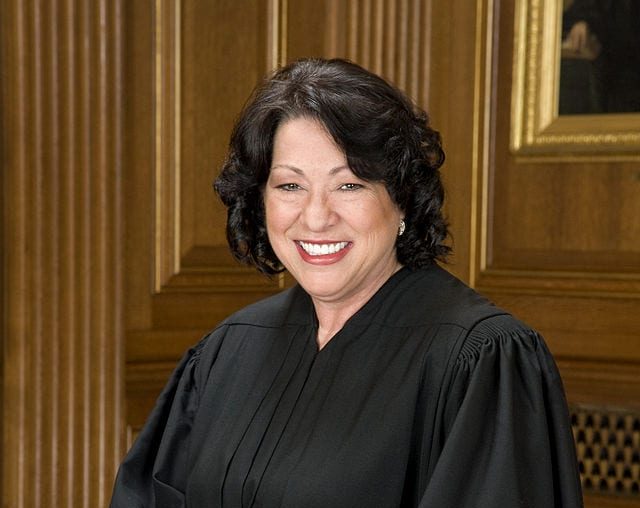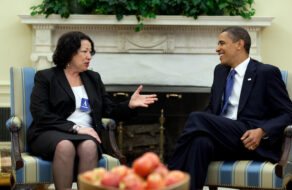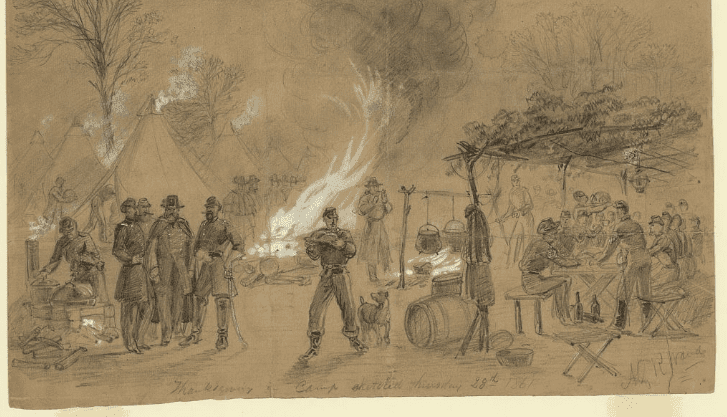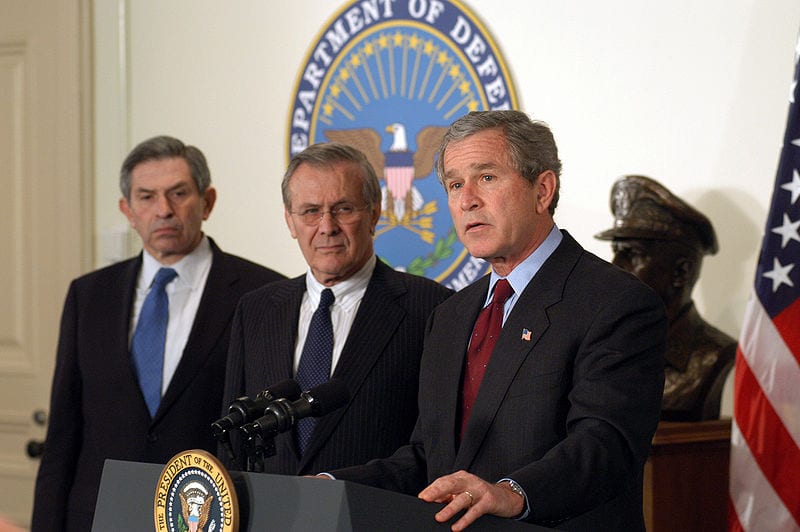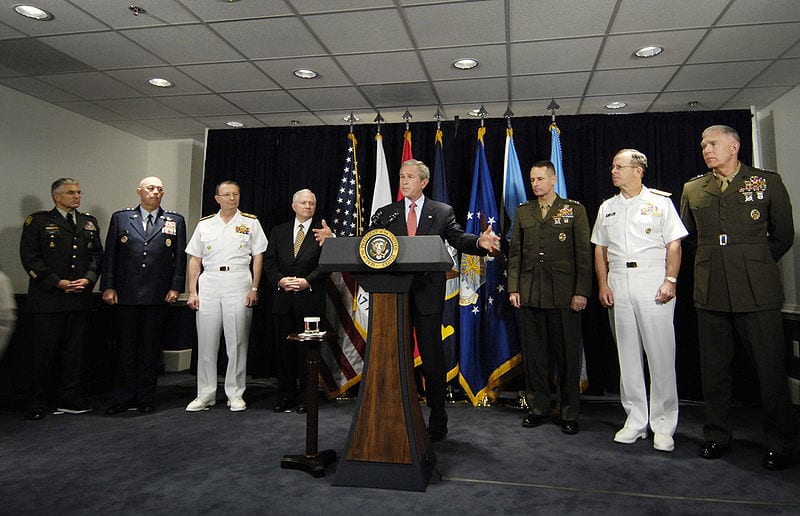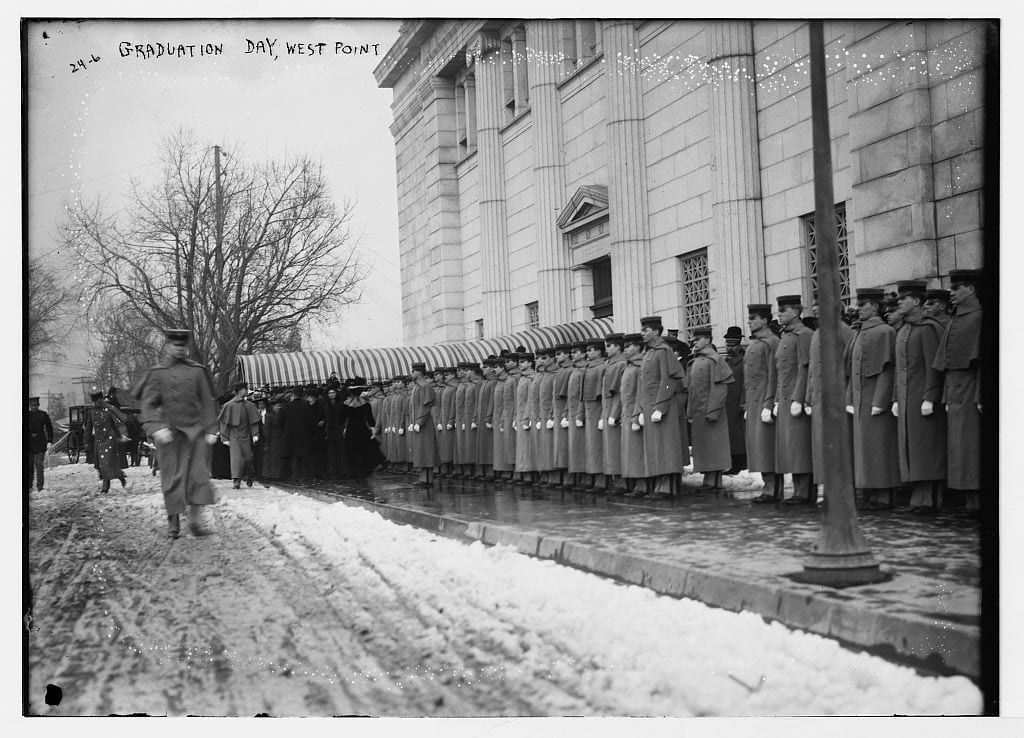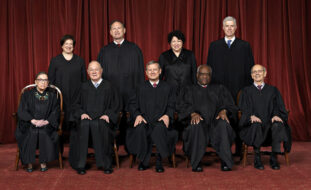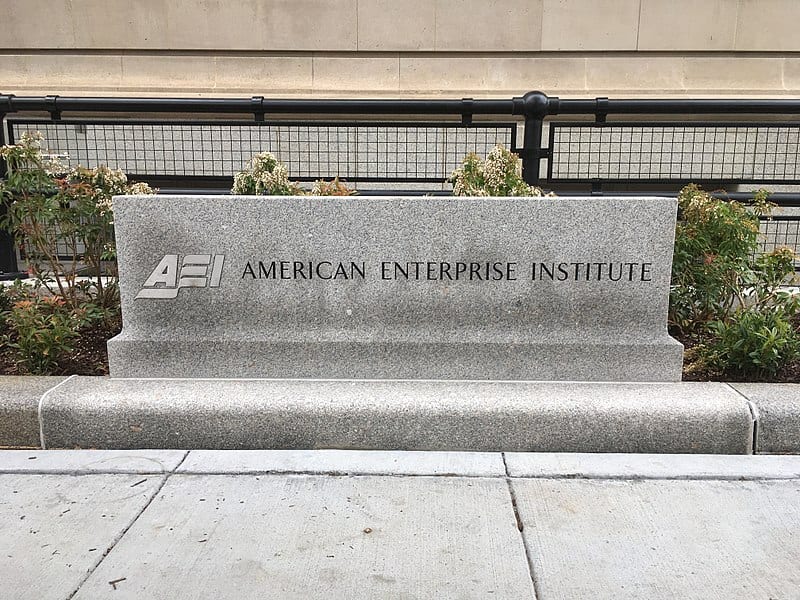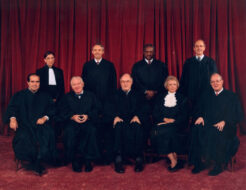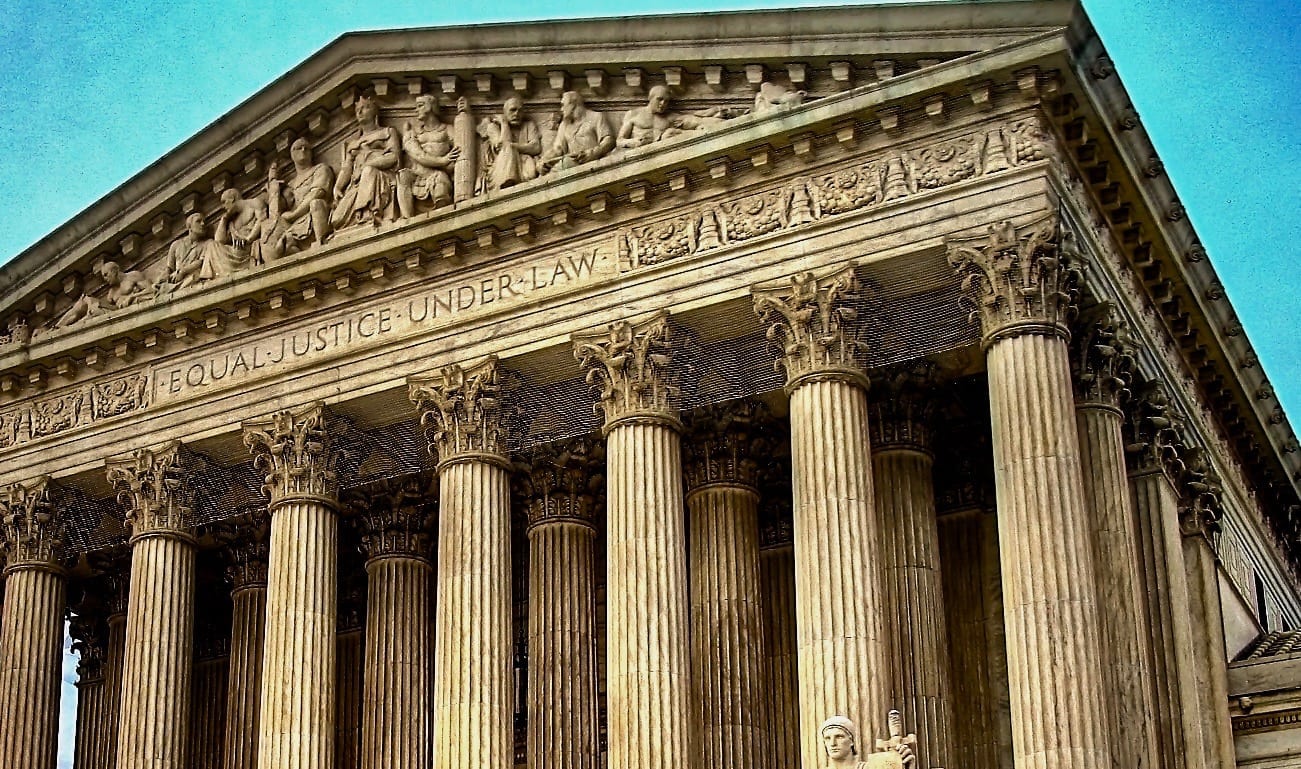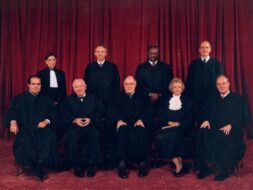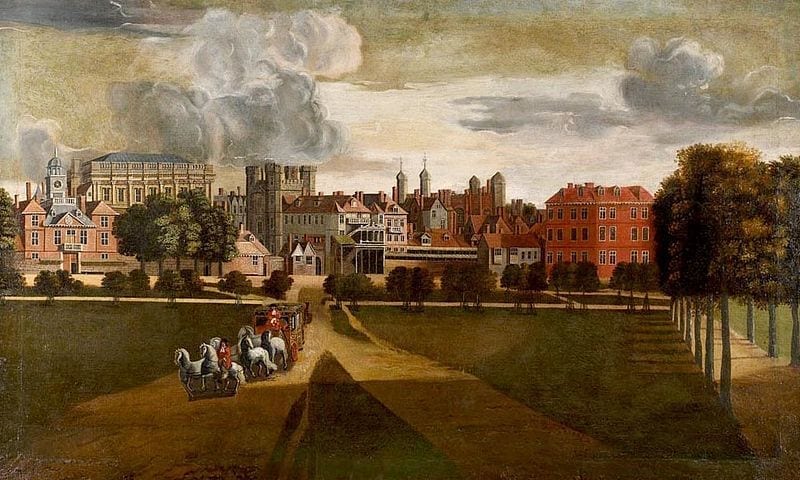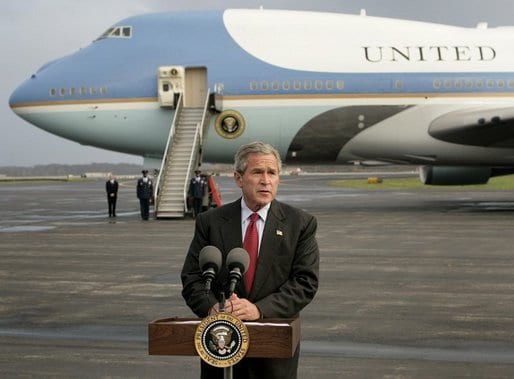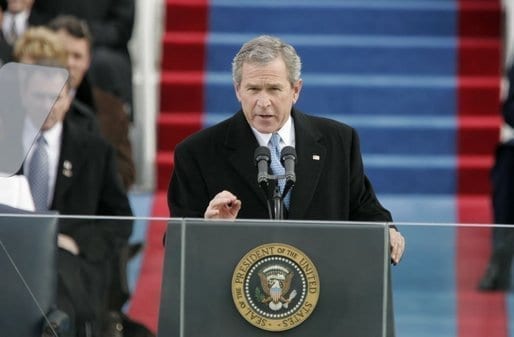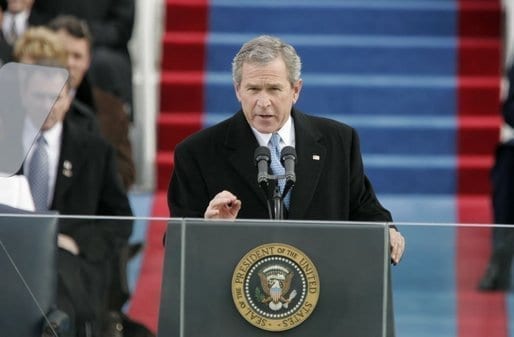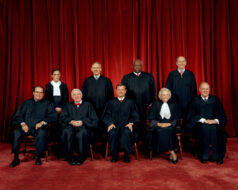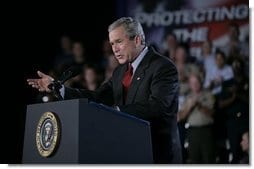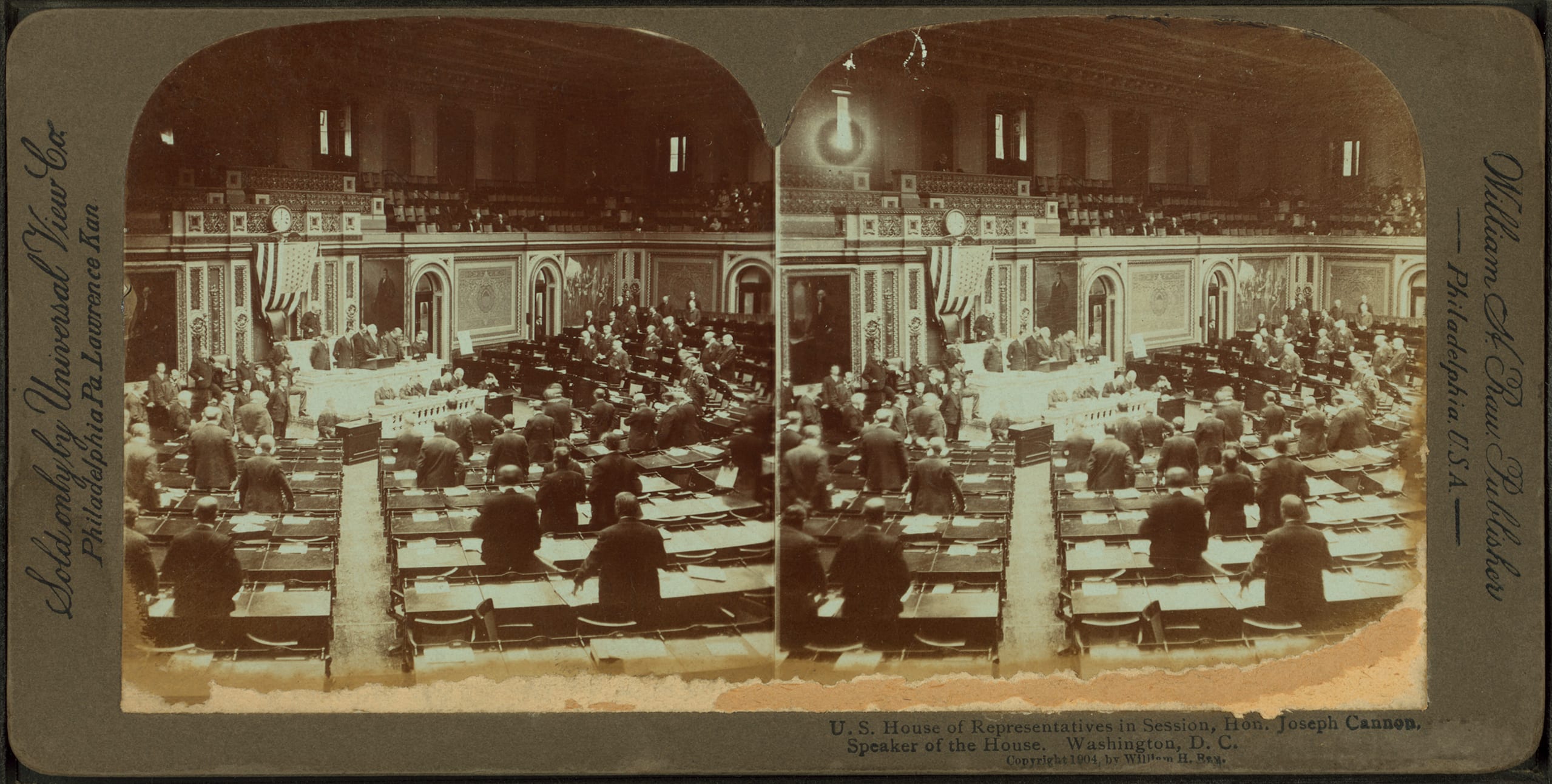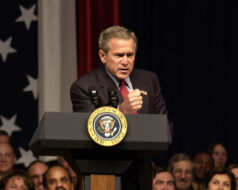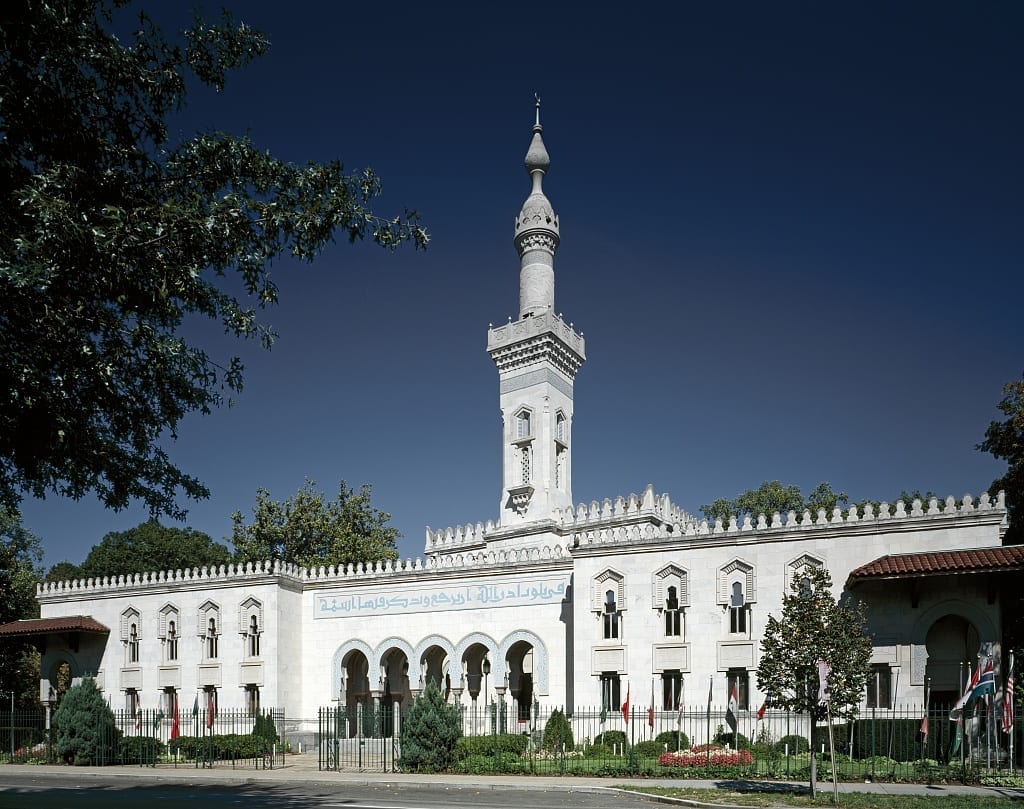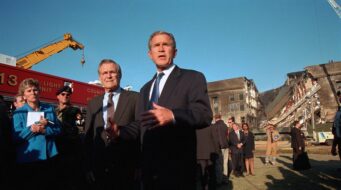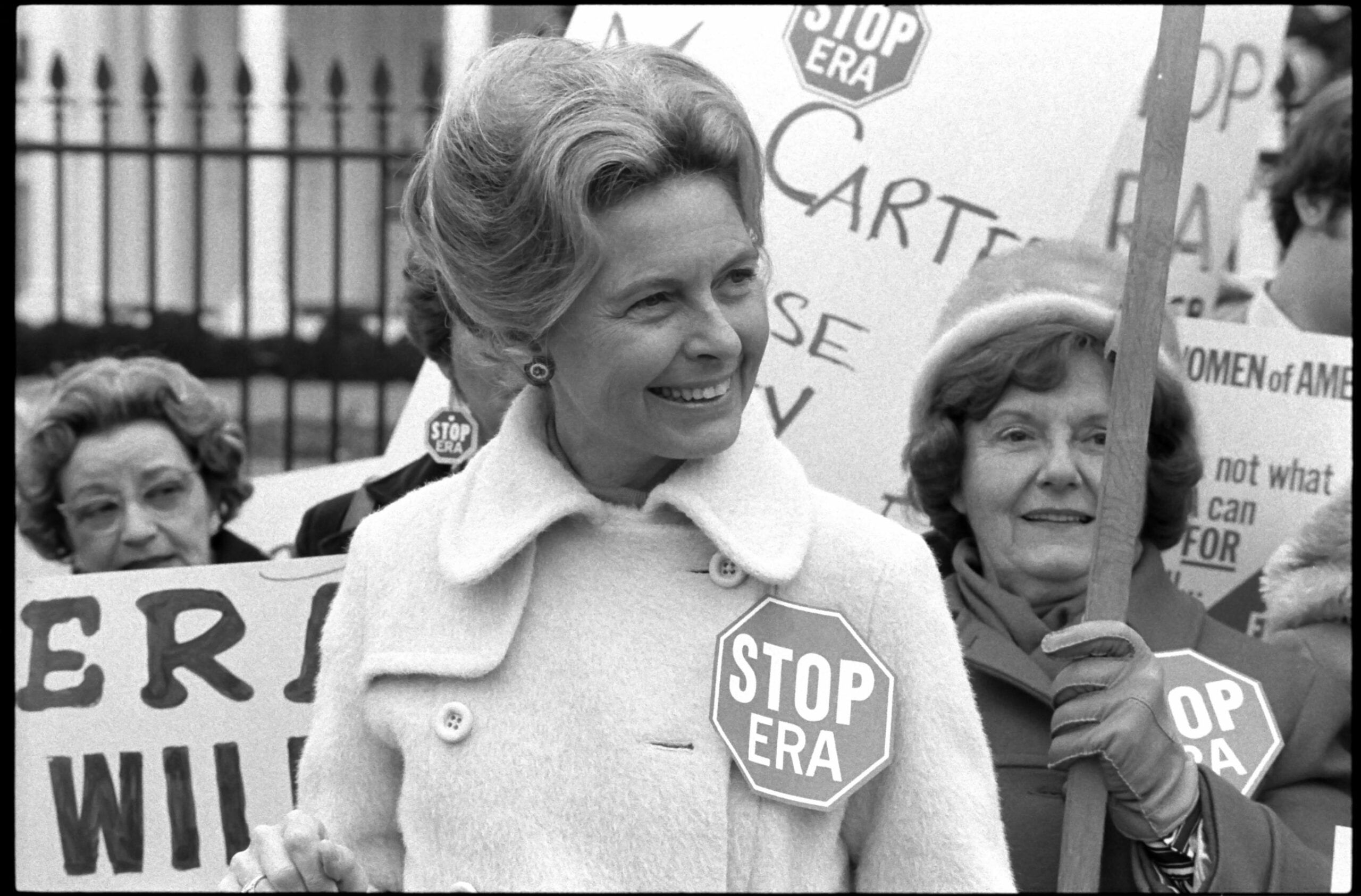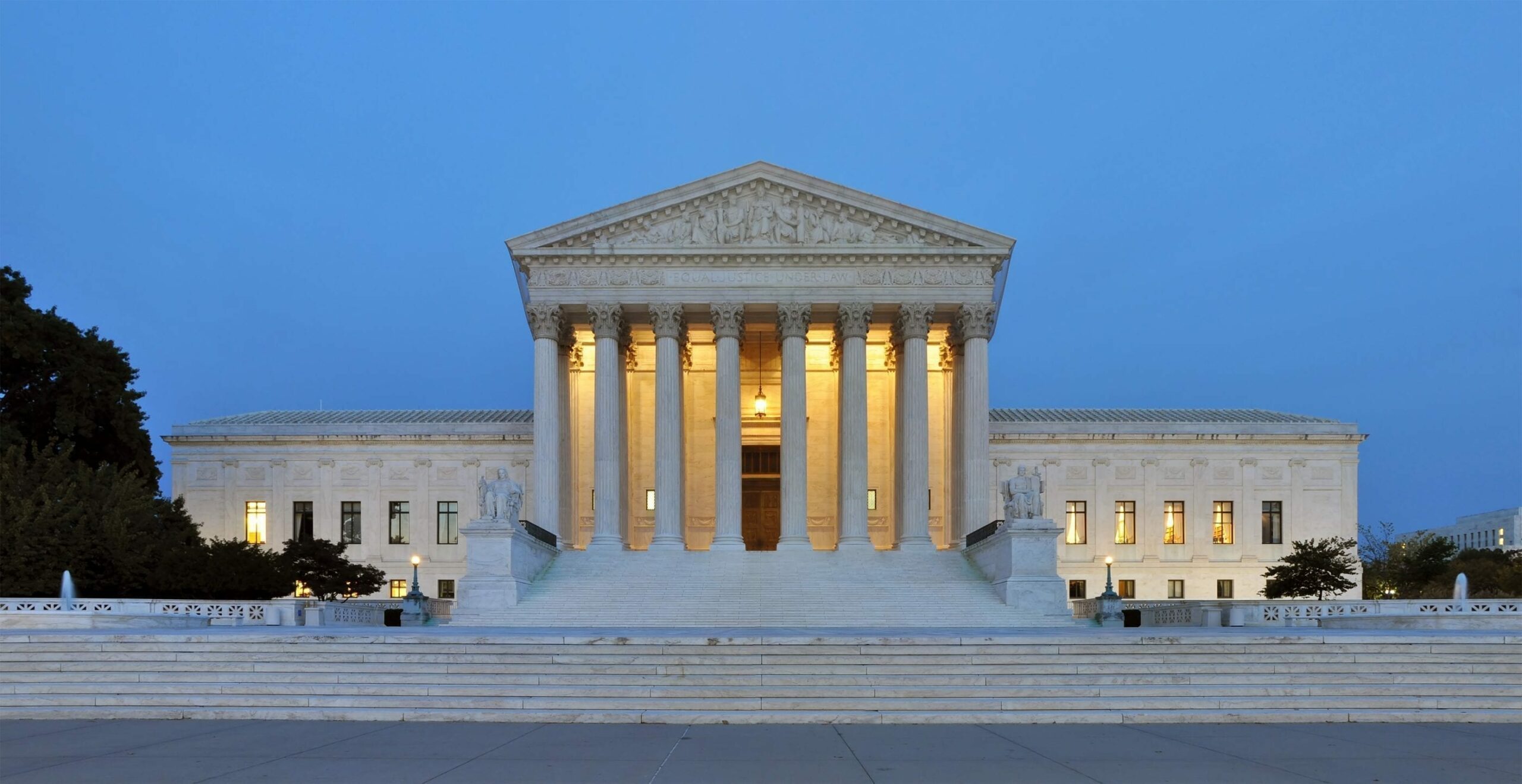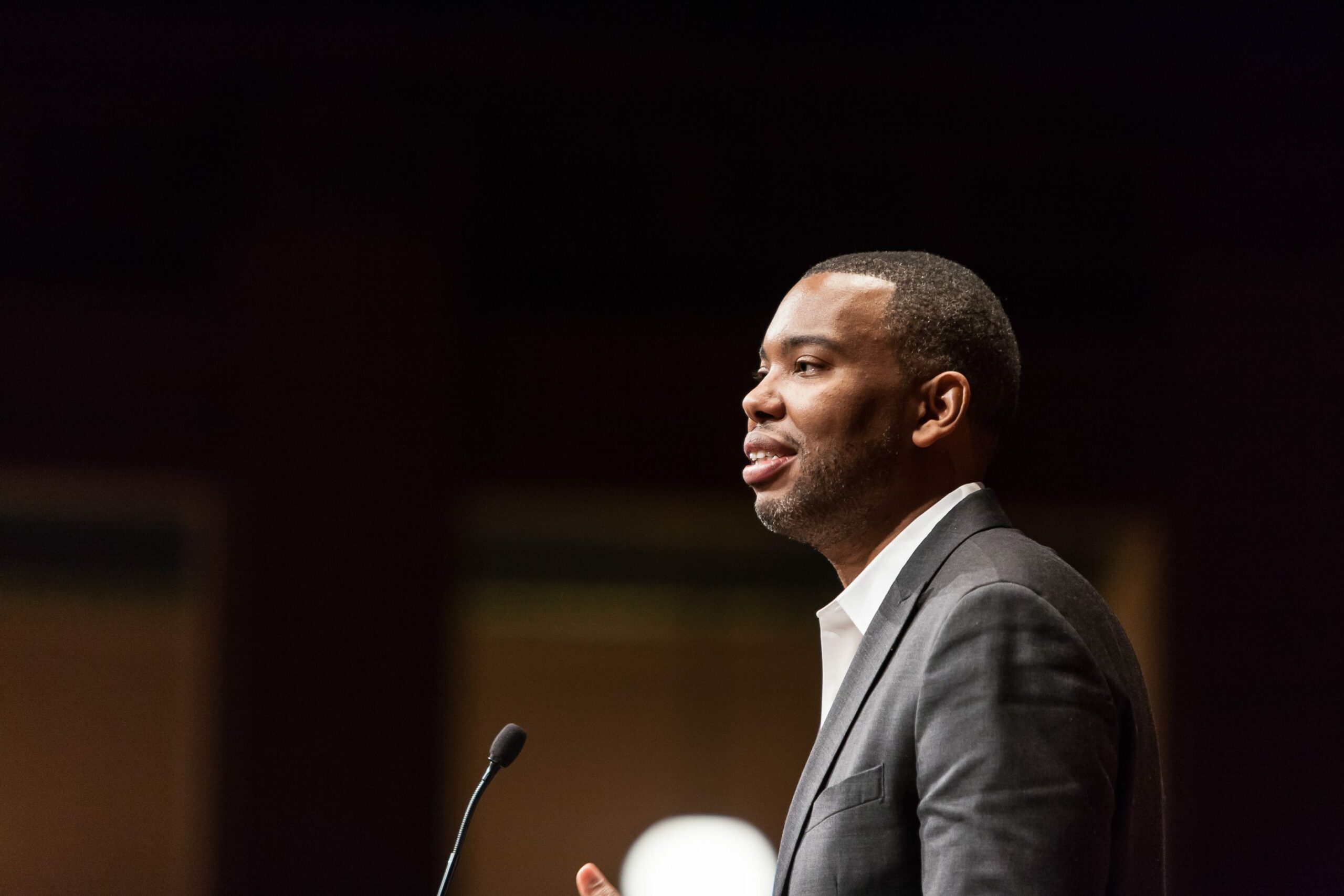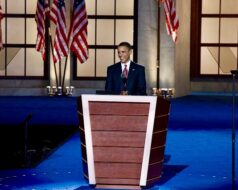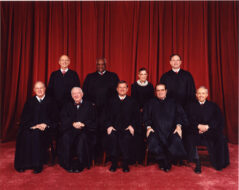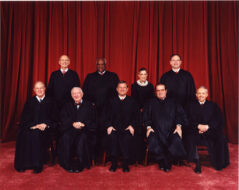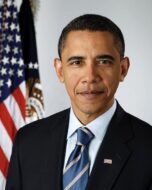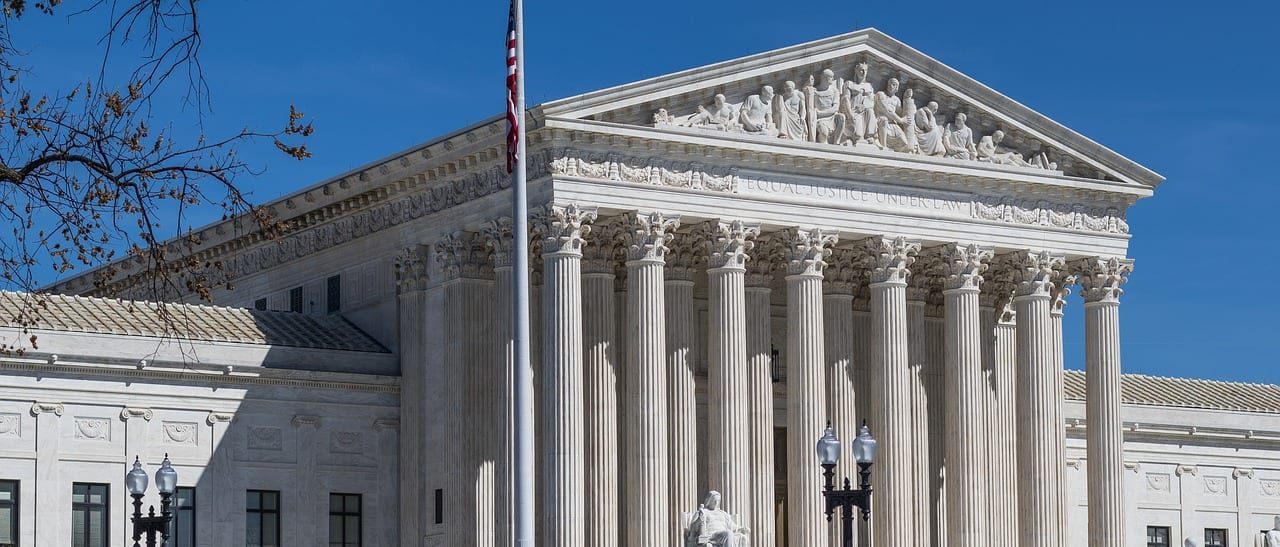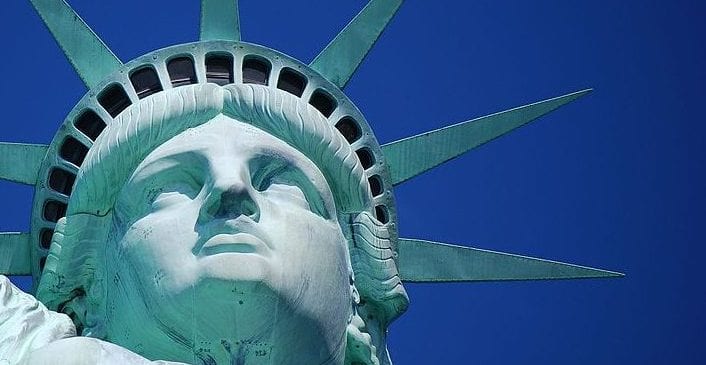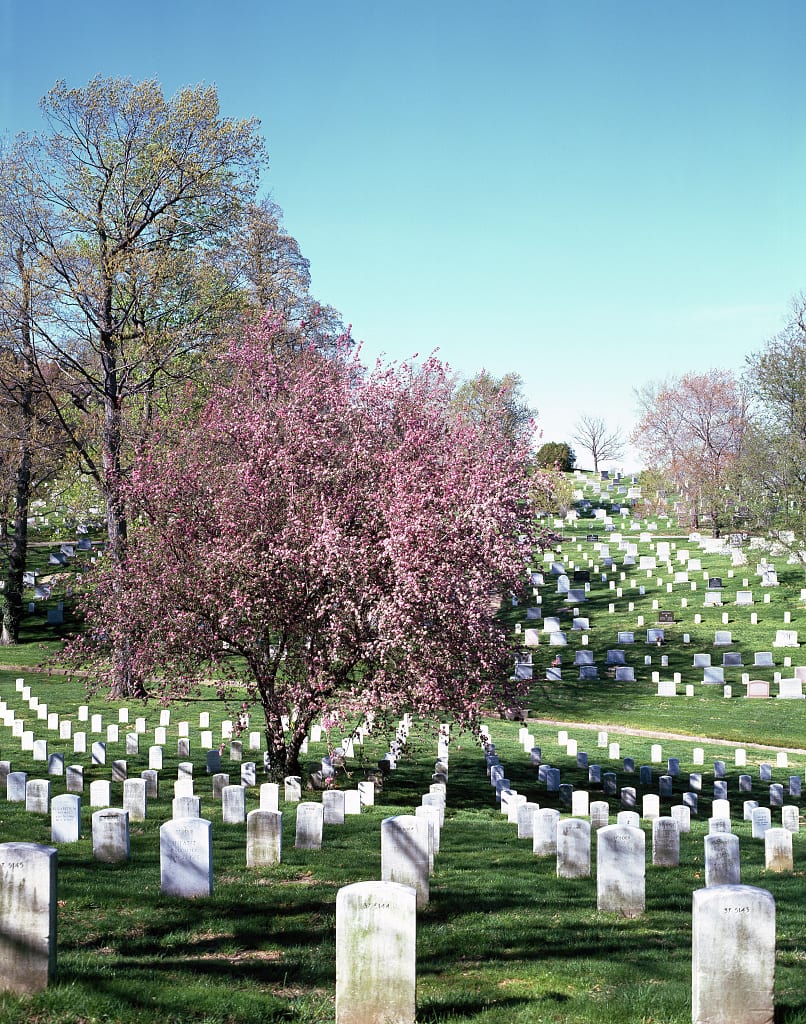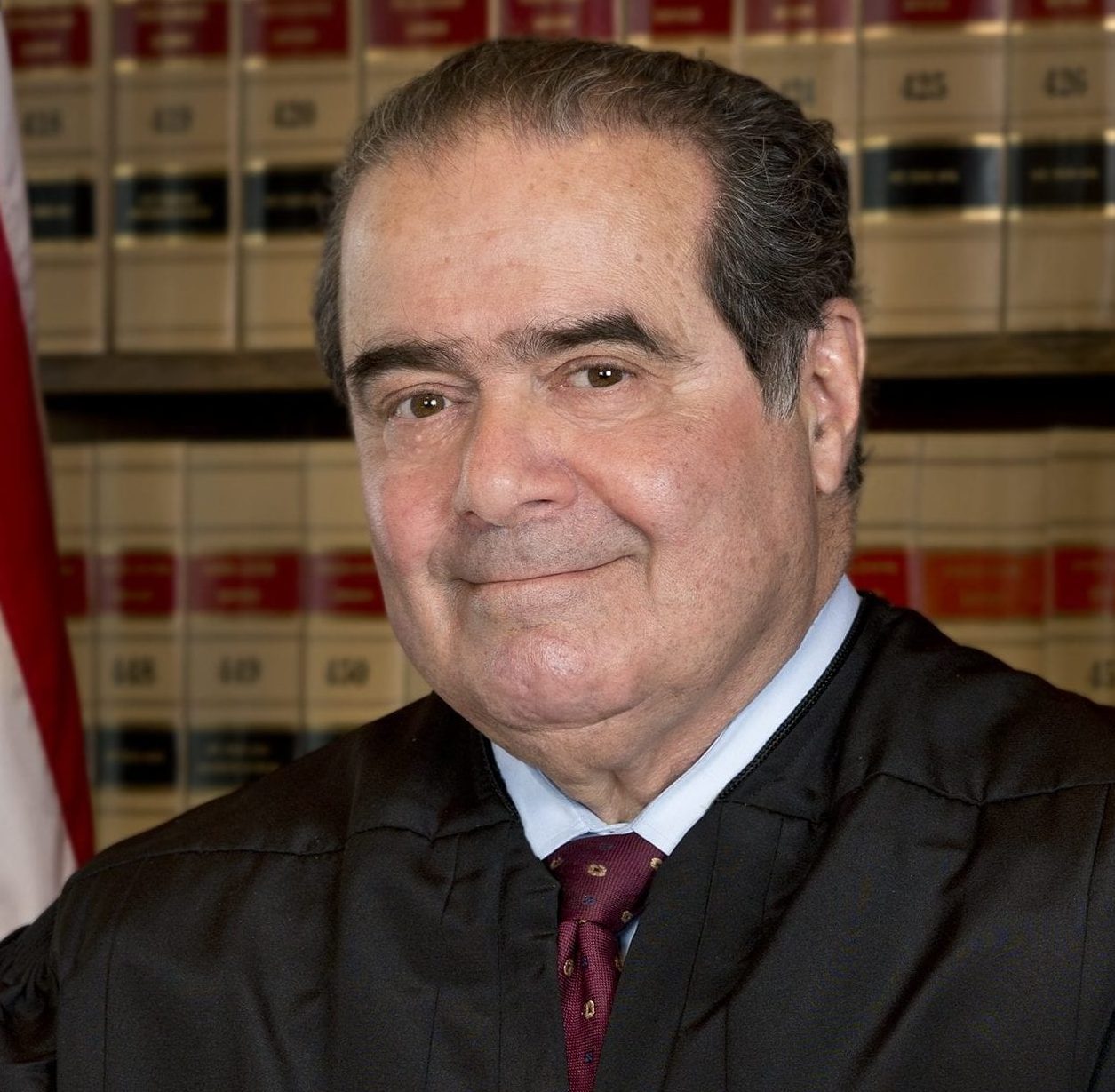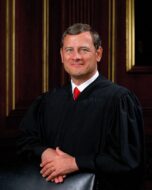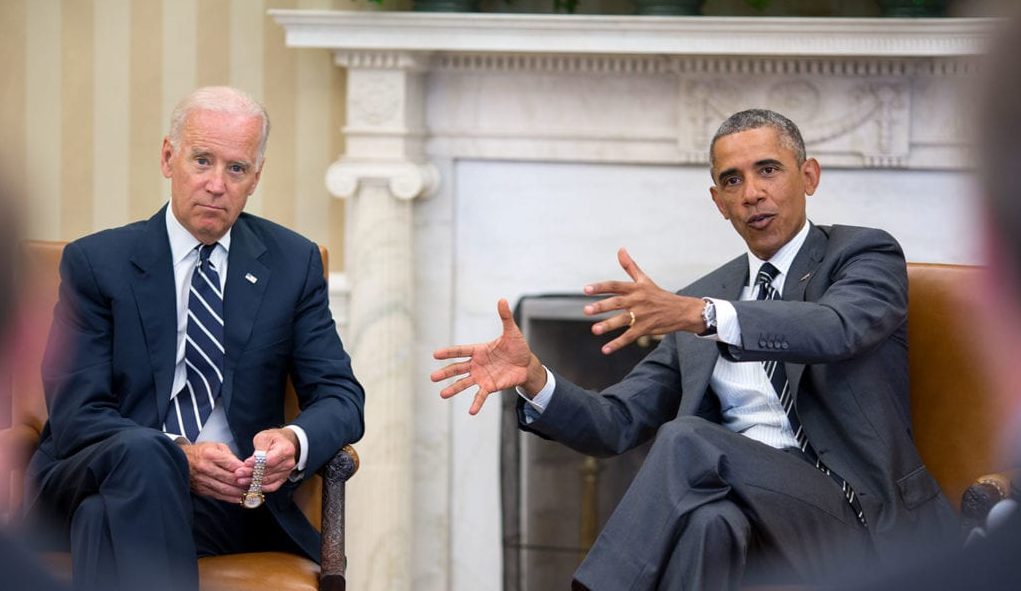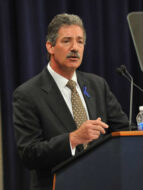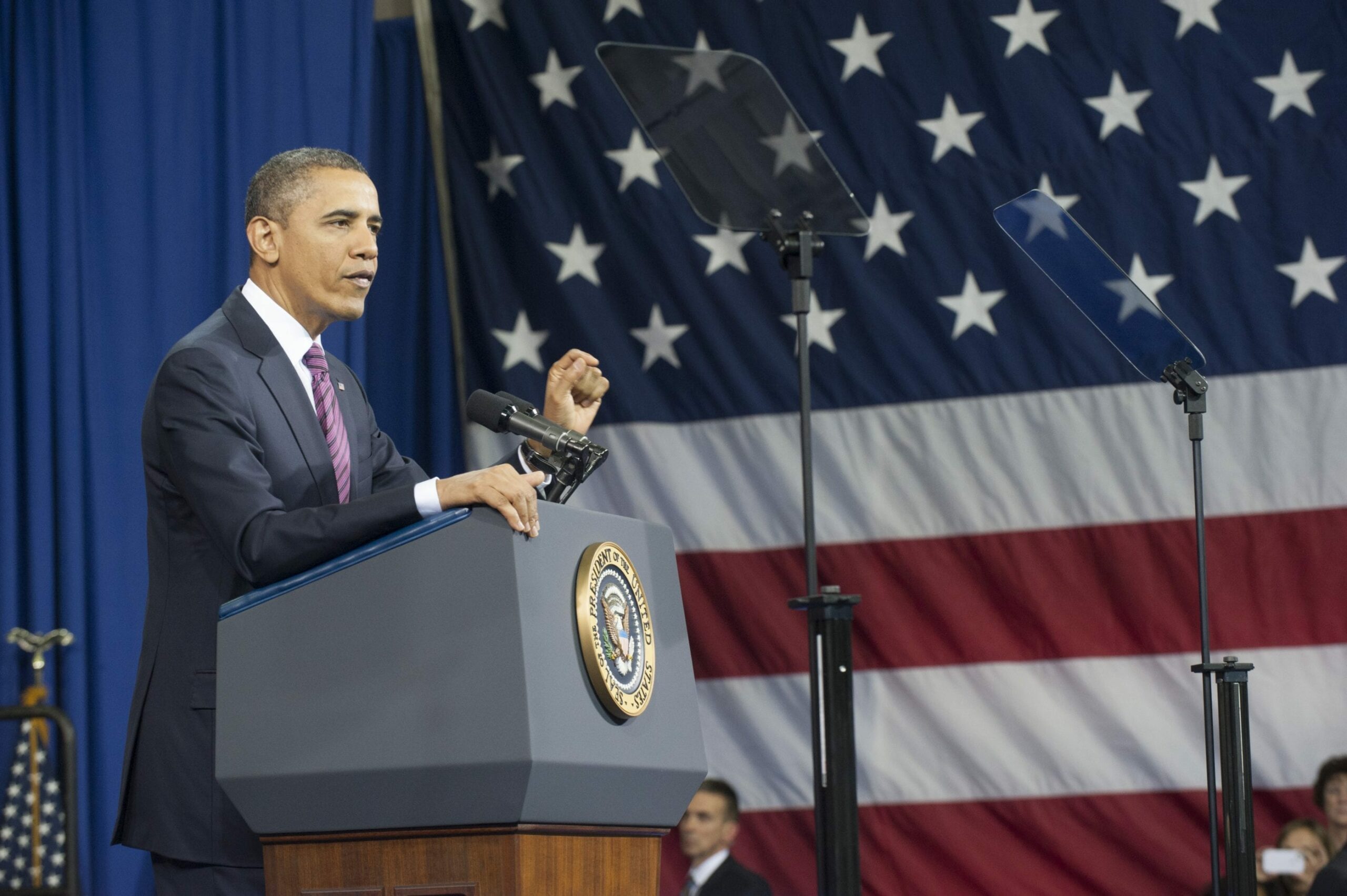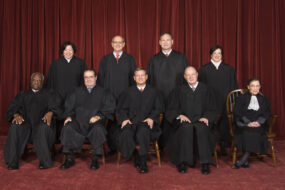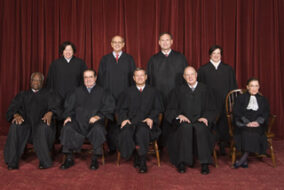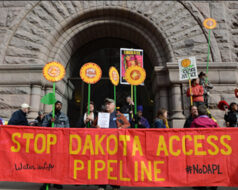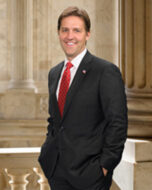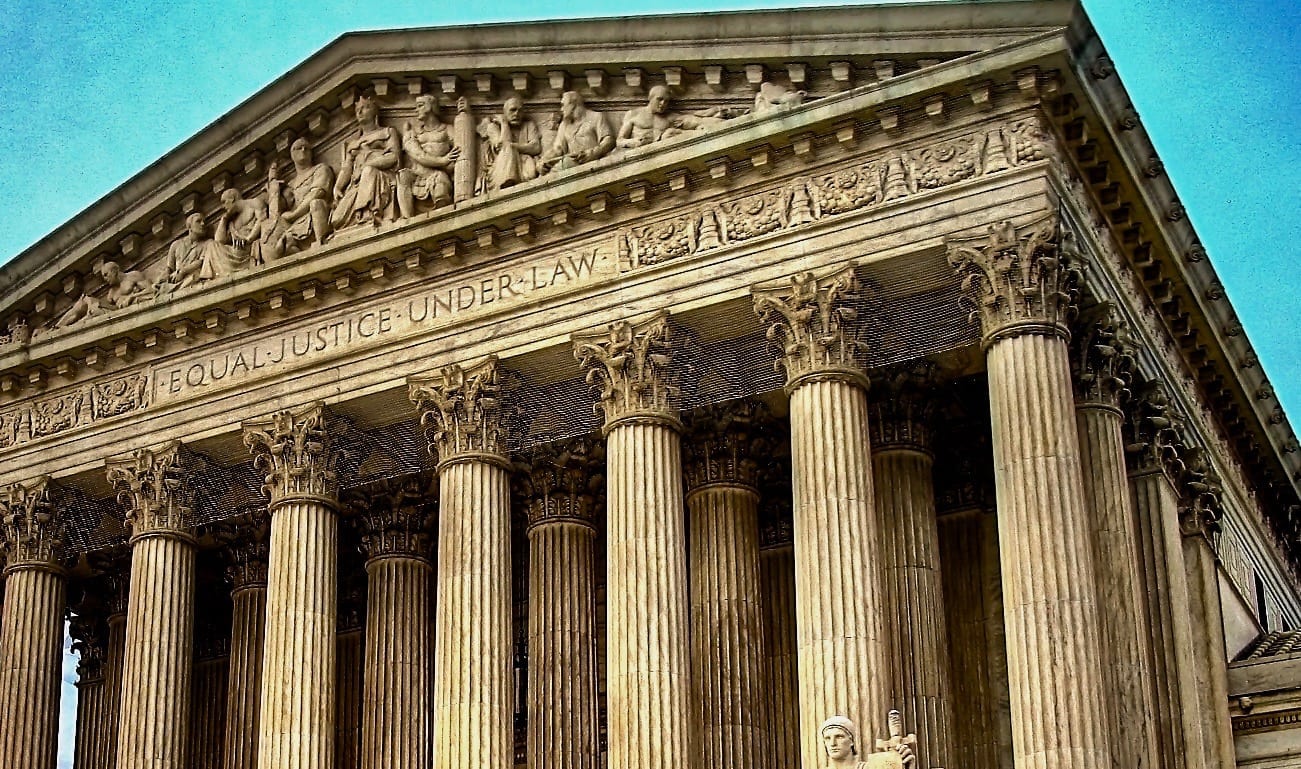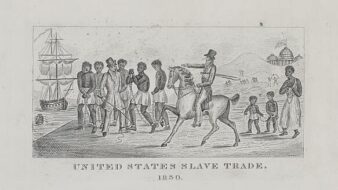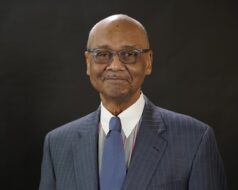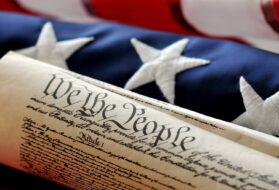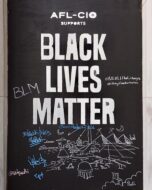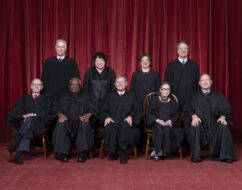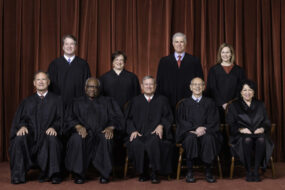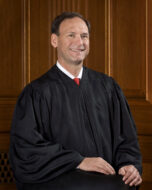
No related resources
Introduction
Clarence Thomas (1948– ) is the second African American to serve as a justice on the U.S. Supreme Court. Thomas was born in the small town of Pin Point, Georgia, and lived for the first few years of his life in extreme poverty. At the age of seven he was sent with his brother to live with their grandparents in Savannah. In his memoir, My Grandfather’s Son, Thomas calls his grandfather, Myers Anderson, the greatest man he has ever known.
After briefly studying at a Missouri seminary, Thomas matriculated at Holy Cross College, where he graduated in 1971. He went on to law school at Yale, and following his graduation went to work for Missouri attorney general John Danforth. He accompanied Danforth to Washington, DC, after the latter was elected to the Senate. In 1981 Thomas was appointed assistant secretary for Civil Rights in the Department of Education, and the following year he became chair of the Equal Employment Opportunity Commission. In 1990 he was appointed judge on the U.S. Court of Appeals in Washington, DC. A year later he was appointed to replace Justice Thurgood Marshall on the Supreme Court.
During his tenure on the Court, Justice Thomas has taken positions at odds with those held by Marshall as well as by most leaders of civil rights organizations in recent decades. He has established himself as a leading constitutional originalist (a school of thought holding that laws are to be interpreted according to the original intention of the lawmakers or the original public meaning of the law’s text), and he has also made clear his opposition to governmental usage of race classifications. Because these positions are associated with political conservatism, critics have assailed both his character and the legitimacy of his appointment. In the present selection, speaking to the nation’s primary association of black lawyers at its annual convention, Justice Thomas responds to those critics.
Source: https://www.c-span.org/video/?109490-1/supreme-court-justice-speech. Used in accordance with C-SPAN’s terms and conditions of use.
. . .As has become the custom, a wearisome one I admit, this invitation has not been without controversy. Though unfortunate, this controversy has added little value in the calculus of my decision to be here.
Thirty years ago, we all focused intently on this city1 as the trauma of Dr. King’s death first exploded, then sank into our lives. . . .
It was this event that shattered my faith in my religion and my country. I had spent the mid-’60s as a successful student in a virtually white environment. I had learned Latin, physics, and chemistry. I had accepted the loneliness that came with being “the integrator,” the first and the only. But this event, this trauma I could not take, especially when one of my fellow seminarians, not knowing that I was standing behind him, declared that he hoped the S.O.B. died. This was a man of God, mortally stricken by an assassin’s bullet, and one preparing for the priesthood had wished evil upon him.
The life I had dreamed of so often during those hot summers on the farm in Georgia or during what seemed like endless hours on the oil truck with my grandfather, expired as Dr. King expired. As so many of you do, I still know exactly where I was when I heard the news. It was a low moment in our nation’s history and a demarcation between hope and hopelessness for many of us. . . .
. . . But much has changed since then. The hope that there would be expeditious resolutions to our myriad problems has long since evaporated with those years. Many who debated and hoped then, now do neither. There now seems to be a broad acceptance of the racial divide as a permanent state. While we once celebrated those things that we had in common with our fellow citizens who did not share our race, so many now are triumphal about our differences, finding little, if anything, in common. Indeed, some go so far as to all but define each of us by our race and establish the range of our thinking and our opinions, if not our deeds by our color.
I, for one, see this in much the same way I saw our denial of rights— as nothing short of a denial of our humanity. Not one of us has the “gospel,” nor are our opinions based upon some revealed precepts to be taken as faith. As thinking, rational individuals, not one of us can claim infallibility, even from the overwhelming advantage of hindsight and Monday-morning quarterbacking.
This makes it all the more important that our fallible ideas be examined as all ideas are in the realm of reason, not as some doctrinal or racial heresy. None of us—none of us—have been appointed by God or appointed God. . . .
I’ve found during my almost twenty years in Washington that the tendency to personalize differences has grown to be an accepted way of doing business. One need not do the hard work of dissecting an argument. One need only attack and thus discredit the person making the argument. Though the matter being debated is not effectively resolved, the debate is reduced to unilateral pronouncements and glib but quotable clichés.
I, for one, have been singled out for particularly bilious and venomous assaults. These criticisms, as near as I can tell, and I admit that it is rare that I take notice of this calumny, have little to do with any particular opinion, though each opinion does provide one more occasion to criticize. Rather, the principal problem seems to be a deeper antecedent offense: I have no right to think the way I do because I’m black. . . .
One opinion that is trotted out for propaganda, for the propaganda parade, is my dissent in Hudson vs. McMillian.2 The conclusion reached by the long arms of the critics is that I supported the beating of prisoners in that case. Well, one must either be illiterate or fraught with malice to reach that conclusion.
Though one can disagree with my dissent, and certainly the majority of the Court disagreed, no honest reading can reach such a conclusion. Indeed, we took the case to decide the quite narrow issue, whether a prisoner’s rights were violated under the “cruel and unusual punishment” clause of the Eighth Amendment as a result of a single incident of force by the prison guards which did not cause a significant injury.
In the first section of my dissent, I stated the following: “In my view, a use of force that causes only insignificant harm to a prisoner may be immoral; it may be tortious; it may be criminal, and it may even be remediable under other provisions of the Federal Constitution. But it is not cruel and unusual punishment.”
Obviously, beating prisoners is bad. But we did not take the case to answer this larger moral question or a larger legal question of remedies under other statutes or provisions of the Constitution. How one can extrapolate these larger conclusions from the narrow question before the Court is beyond me, unless, of course, there’s a special segregated mode of analysis.
It should be obvious that the criticism of this opinion serves not to present counter-arguments, but to discredit and attack me because I’ve deviated from the prescribed path. In his intriguing and thoughtful essay on “My Race Problem and Ours,” Harvard law professor Randall Kennedy, a self-described social Democrat, correctly observes that “if racial loyalty is deemed essentially and morally virtuous, then a black person’s adoption of positions that are deemed racially disloyal will be seen by racial loyalists as a supremely threatening sin, one warranting the harsh punishments that have historically been visited upon alleged traitors.” Perhaps this is the defensive solidarity to which Richard Wright refers. If so, it is a reaction I understand, but resolutely decline to follow.
In the final weeks of my seminary days, shortly after Dr. King’s death, I found myself becoming consumed by feelings of animosity and anger. I was disenchanted with my church and my country. I was tired of being in the minority, and I was tired of turning the other cheek. I, along with many blacks, found ways to protest and try to change the treatment we received in this country. Perhaps my passion for Richard Wright novels was affecting me. Perhaps it was listening too intently to Nina Simone. Perhaps, like Bigger Thomas, I was being consumed by the circumstances in which I found myself, circumstances that I saw as responding only to race.
My feelings were reaffirmed during the summer of 1968 as a result of the lingering stench of racism in Savannah and the assassination of Bobby Kennedy. No matter what the reasons were, I closed out the ’60s as one angry young man waiting on the revolution that I was certain would soon come. I saw no way out. I, like many others, felt the deep chronic agony of anomie and alienation. All seemed to be defined by race. We became a reaction to the “man,” his ominous reflection.
The intensity of my feelings was reinforced by other events of the late ’60s: the riots, the marches, the sense that something had to be done, done quickly to resolve the issue of race. In college there was an air of excitement, apprehension, and anger. We started the Black Students’ Union. We protested. We worked in the Free Breakfast Program. We would walk out of school in the winter of 1969 in protest.
But the questioning for me started in the spring of 1970 after an unauthorized demonstration in Cambridge, Massachusetts, to “free the political prisoners.” Why was I doing this rather than using my intellect? Perhaps I was empowered by the anger and relieved that I could now strike back at the faceless oppressor. But why was I conceding my intellect and rather fighting much like a brute? This I could not answer, except to say that I was tired of being restrained. . . .
So in the spring of 1970, in a nihilistic fog, I prayed that I’d be relieved of the anger and the animosity that ate at my soul. I did not want to hate anymore, and I had to stop before it totally consumed me. I had to make a fundamental choice. Do I believe in the principles of this country or not? After such angst, I concluded that I did. But the battle between passion and reason would continue, although abated, still intense. . . .
As I think back on those years, I find it interesting that many people seemed to have trouble with their identities as black men. . . .
. . .There’s a rush today to prescribe who is black, to prescribe what [are] our differences, or to ignore what our differences are. Of course, those of us who came from the rural South were different from the blacks who came from the large northern cities, such as Philadelphia and New York. We were all black. But that similarity did not mask the richness of our differences. Indeed, one of the advantages of growing up in a black neighborhood was that we were richly blessed with the ability to see the individuality of each black person with all its fullness and complexity. We saw those differences at school, at home, at church, and definitely at the barbershop on Saturday morning.
Intra-racially, we consistently recognized our differences. It is quite counter-factual to suggest that such differences have not existed throughout our history. Indeed, when I was on the other side of the ideological divide, arguing strenuously with my grandfather that the revolution was imminent and that we all had to stick together as black people, he was quick to remind me that he had lived much longer than I had, and during far more difficult times, and that, in any case, it took all kinds to make a world.
I agree with Ralph Ellison3 when he asked, perhaps rhetorically, why is it that so many of those who would tell us the meaning of Negro, of Negro life, never bothered to learn how varied it really is. That is particularly true of many whites who have elevated condescension to an art form by advancing a monolithic view of blacks in much the same way that the mythic, disgusting image of the lazy, dumb black was advanced by open, rather than disguised, bigots.
Today, of course, it is customary to collapse, if not overwrite, our individual characteristics into new, but now acceptable stereotypes. It no longer matters whether one is from urban New York City or rural Georgia. It doesn’t matter whether we came from a highly educated family or a barely literate one. It does not matter if you are a Roman Catholic or a Southern Baptist. All of these differences are canceled by race, and a revised set of acceptable stereotypes have been put in place.
Long gone is the time when we opposed the notion that we all looked alike and talked alike. Somehow we have come to exalt the new black stereotype above all and to demand conformity to that norm. It is this notion—that our race defines us—that Ralph Ellison so eloquently rebuts in his essay, “The World and the Jug.” He sees the lives of black people as more than a burden, but also a discipline, just as any human life which has endured so long is a discipline, teaching its own insights into the human condition, its own strategies of survival. There’s a fullness and even a richness here. And here despite the realities of politics, perhaps, but nevertheless here and real because it is human life. . . .
It goes without saying that I understand the comforts and security of racial solidarity, defensive or otherwise. Only those who have not been set upon by hatred and repelled by rejection fail to understand its attraction. As I have suggested, I have been there. The inverse relationship between the bold promises and the effectiveness of the proposed solutions, the frustrations with the so-called system, the subtle and not-so-subtle bigotry and animus toward members of my race made radicals and nationalists of many of us. Yes, I understand the reasons why this is attractive. But it is precisely this—in its stark form, not its present-day diluted form—that I have rejected. . . .
Any effort, policy, or program that has as a prerequisite the acceptance of the notion that blacks are inferior is a non-starter with me. I do not believe that kneeling is a position of strength. Nor do I believe that begging is an
effective tactic. I am confident that the individual approach, not the group approach, is the better, more acceptable, more supportable, and less dangerous one. This approach is also consistent with the underlying principles of this country and the guarantees of freedom through government by consent. I, like Frederick Douglass, believe that whites and blacks can live together and be blended into a common nationality.4…
It pains me deeply, or more deeply than any of you can imagine, to be perceived by so many members of my race as doing them harm. All the sacrifice, all the long hours of preparation were to help, not to hurt. But what hurts more, much more, is the amount of time and attention spent on manufactured controversies and media sideshows when so many problems cry out for constructive attention.
I have come here today not in anger or to anger, though my mere presence has been sufficient, obviously, to anger some. Nor have I come to defend my views, but rather to assert my right to think for myself, to refuse to have my ideas assigned to me as though I was an intellectual slave because I’m black. I come to state that I’m a man, free to think for myself and do as I please. I’ve come to assert that I am a judge and I will not be consigned the unquestioned opinions of others. . . .
Isn’t it time to acknowledge that the problem of race has defied simple solutions and that not one of us, not a single one of us can lay claim to the solution? Isn’t it time that we respect ourselves and each other as we have demanded respect from others?
Isn’t it time to ignore those whose sole occupation is sowing seeds of discord and animus? That is self-hatred.
Isn’t it time to continue diligently to search for lasting solutions?
I believe that the time has come today.
God bless each of you, and may God keep you.
- 1. In 1998, the National Bar Association met in Memphis, Tennessee.
- 2. 503 U.S. 1 (1992), at 17.
- 3. Ralph Waldo Ellison (1914–1994) was a black American novelist whose most famous work, Invisible Man, won the National Book Award in 1953.
- 4. See Frederick Douglass, The Future of the Colored Race (1886).

Conversation-based seminars for collegial PD, one-day and multi-day seminars, graduate credit seminars (MA degree), online and in-person.
